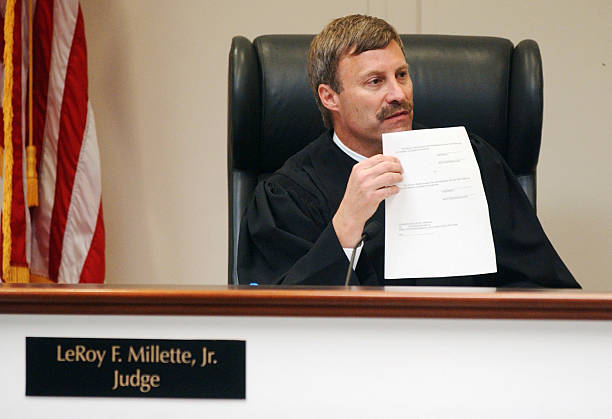An Overview of the Criminal Procedure (Scotland) Act 1995
The Criminal Procedure (Scotland) Act 1995 is a comprehensive legal framework governing criminal procedures in Scotland. It consolidates and codifies the various procedures and laws applicable to criminal cases, ranging from arrest and detention to trials, appeals, and sentencing. This Act provides guidelines on how criminal cases should be conducted and ensures consistency, fairness, and justice in the Scottish criminal justice system.
1. Historical Background and Purpose of the Act
The Criminal Procedure (Scotland) Act 1995 consolidates previous laws governing criminal procedures in Scotland. Before this Act, Scottish criminal law was scattered across multiple statutes and case laws, making it complex and challenging to navigate. This Act was introduced to simplify the criminal justice process and make it more transparent and accessible. It brought together various laws into a single comprehensive framework, reflecting Scotland’s distinct legal traditions and addressing specific issues within its jurisdiction.

2. Structure of the Act
The Act is divided into multiple parts, each focusing on different aspects of criminal procedure:
Part I: General and Summary Procedure
This part covers preliminary matters, including jurisdiction, the role of procurators fiscal (public prosecutors), summary proceedings, and offenses that can be handled without a jury trial. It also includes provisions related to minor offenses, pre-trial procedures, and the issuance of warrants.
Part II: Solemn Procedure
This part deals with serious criminal cases that require a jury trial. It outlines the procedures for indictment, preliminary hearings, jury selection, and the conduct of trials in solemn cases. It also provides guidelines on the powers of the judge, the rights of the accused, and evidence presentation.
Part III: Appeal and Review
This section covers appeals against convictions and sentences. It sets out the procedures for appealing decisions made in both summary and solemn cases. It also provides for reviews of criminal proceedings by the High Court of Justiciary and other appeal courts.
Part IV: Sentencing
This part outlines the various sentencing options available to Scottish courts, including imprisonment, fines, community sentences, and probation. It provides guidelines on factors to be considered in sentencing, including the nature and severity of the offense, the offender’s criminal history, and any mitigating or aggravating circumstances.
Part V: Evidence
This part deals with rules of evidence in criminal cases. It outlines the types of evidence admissible in court, the procedure for presenting evidence, and the rights of the accused and witnesses. It also includes provisions on the admissibility of certain types of evidence, such as confessions and hearsay.
Part VI: Miscellaneous Provisions
This section includes various other provisions related to criminal procedure, such as the rights of children and vulnerable persons, extradition procedures, and international cooperation in criminal matters.
—
3. Key Provisions of the Act
Arrest and Detention Procedures
The Act sets out the conditions under which an individual can be arrested and detained by the police. It specifies the powers of the police to arrest without a warrant in certain circumstances, the rights of the arrested person, including the right to legal representation, and the procedures for detention and questioning.
Bail and Remand
The Act provides for the granting of bail and conditions under which bail can be refused or revoked. It outlines the rights of the accused to apply for bail, the considerations to be taken into account by the court in deciding whether to grant bail, and the obligations of those released on bail.
Trial Procedures
The Act differentiates between summary and solemn procedures, with summary procedures being for less serious offenses and solemn procedures for more serious offenses. It outlines the steps involved in both types of trials, from the initial appearance of the accused in court to the final judgment. It also provides for the use of special measures to protect vulnerable witnesses and ensure fair trial rights.
Sentencing Guidelines
The Act outlines the sentencing options available to the courts and the factors that should be taken into account when determining an appropriate sentence. It provides for various types of sentences, including imprisonment, fines, community service, and probation, and sets out the procedures for imposing and enforcing these sentences.
Appeals and Reviews
The Act provides a framework for appeals against convictions and sentences. It sets out the procedures for appealing to the High Court of Justiciary and other appellate courts, the grounds on which an appeal can be based, and the powers of the appeal court to overturn or vary decisions made by lower courts.
Children and Vulnerable Persons
Special provisions are included to protect the rights and welfare of children and vulnerable persons involved in criminal proceedings. These include measures to ensure their safety and well-being, special arrangements for giving evidence, and procedures for handling cases involving young offenders.
4. Amendments and Updates to the Act
Since its enactment in 1995, the Criminal Procedure (Scotland) Act has been amended several times to address emerging issues and align with developments in criminal justice. Key amendments include changes to bail procedures, the introduction of special measures for vulnerable witnesses, reforms to sentencing guidelines, and updates to evidence law. These amendments ensure that the Act remains relevant and responsive to the evolving needs of Scottish society.
—
5. Impact of the Act on the Scottish Criminal Justice System
The Criminal Procedure (Scotland) Act 1995 has significantly impacted the Scottish criminal justice system by providing a clear and structured framework for criminal procedures. It has contributed to consistency, fairness, and efficiency in handling criminal cases, ensuring that the rights of the accused, victims, and witnesses are protected. The Act has also helped to maintain public confidence in the criminal justice system by promoting transparency and accountability.
—
6. Challenges and Criticisms
Despite its many strengths, the Criminal Procedure (Scotland) Act 1995 has faced criticisms and challenges. Some legal practitioners and scholars argue that certain provisions of the Act are outdated and do not adequately address modern issues such as cybercrime, terrorism, and organized crime. There have also been concerns about the adequacy of safeguards for vulnerable individuals and the need for further reforms to ensure fairness and justice in all cases.
The Criminal Procedure (Scotland) Act 1995 is a cornerstone of the Scottish legal system, providing a comprehensive framework for criminal procedures. Its provisions cover a wide range of areas, from arrest and detention to trials, sentencing, and appeals, ensuring consistency, fairness, and justice. While there have been criticisms and calls for reform, the Act remains a vital tool in the administration of criminal justice in Scotland. Continuous updates and amendments are essential to keep the Act responsive to changing legal, social, and technological landscapes, ensuring that it continues to meet the needs of society and upholds the principles of justice.
This overview highlights the key aspects of the Criminal Procedure (Scotland) Act 1995, providing insights into its structure, provisions, impact, and ongoing relevance to the Scottish legal system. you may also like









